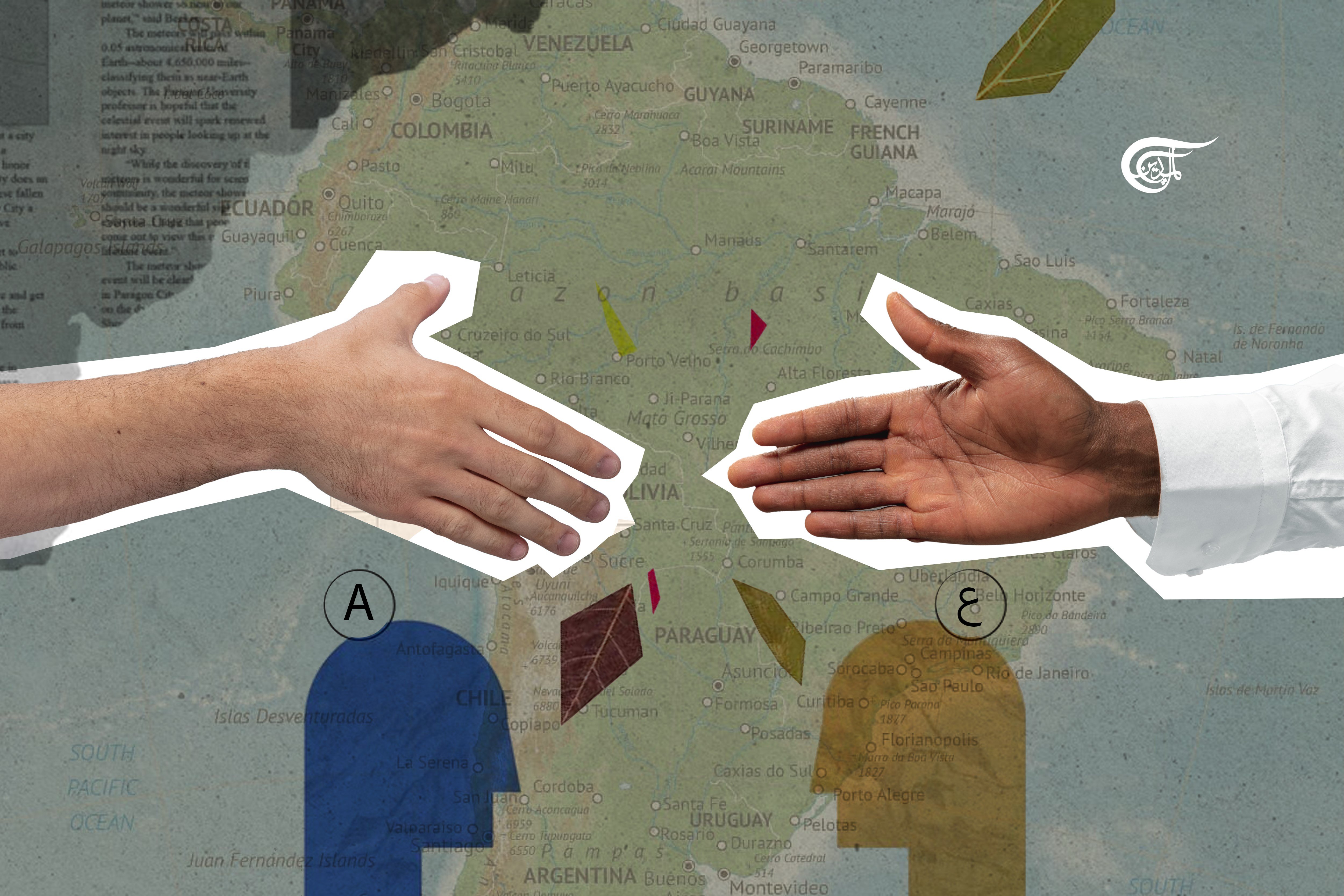Bases for a necessary rapprochement between the Arab countries and Latin America in a world in transformation
A turning point in this reciprocal neglect took place in the early sixties when most countries of the region supported the liberation movements that shook the Arab world to its foundations.
For many years, the Arab world and Latin American countries have been “distant friends”, despite the many objective factors that should have encouraged them to deepen their mutually beneficial relationship in economic, political, and diplomatic terms. This shared disregard was first actively promoted by colonial powers and, later on, after World War II, by American imperialism. A turning point in this reciprocal neglect took place in the early sixties when most countries of the region supported the liberation movements that shook the Arab world to its foundations. Not surprisingly, Cuba led the pack, soon to be followed by a handful of other governments. The Cuban covert military cooperation with the Algerian war against French colonialism was a shining example of this new pattern of relationships. Additionally, Cuban internationalism prompted the rapprochement between these two regions of the world absurdly separated while waging common struggles against the same enemies: US imperialism and the former colonial powers.
Cuba not only sent sugar and other commodities to the Algerian rebels but also, far below in the holds of their merchant ships, there were weapons for Algerian patriots who needed munitions to defeat their French oppressors. With the rise of the Non-Aligned Movement and the summoning of the First Tricontinental Conference held in Havana in January 1966, new avenues of across-the-region cooperation were opened, thus joining the struggles of the peoples of Asia, Africa, and Latin America. Only a few small countries were too close to the United States or subjected to blackmail from Washington with threats about the possibility of receiving remittances from their emigrants living in the United States or imposing quotas or vetoes on the export of their agricultural products to the United States; except in these cases, most of the Latin American countries that have generally supported the Arab movements of national liberation emerging in the aftermath of the Second World War and have opposed interferences, maneuvers, and military interventions by foreign powers in Arab countries.
Yet, as many observers recognize, until recent years, trade remained at very low levels despite the fact that most Arab countries have great investment capacity, especially the oil-producing countries of the Gulf, while many South American countries need to develop projects in different strategic sectors, from agriculture to energy, but lack the investments needed for that purpose.
The economic exchange between these two regions could be mutually beneficial because the oil and gas needed by Latin America can be paid for with the enormous food surplus of the region. But there is not only mutual convenience in the commercial field. The relevance of the diaspora of the Arab world that settled in various countries of the region cannot be ignored, especially coming from Syria, Lebanon, Palestine, Turkiye, and some others. The estimates about the size of the people of Arab descent in the region fluctuate around 15 to 20 million, perhaps more. Brazil is home to the largest Arab population outside of the Arab world, made up of at least 9 million people, most of whom are of Lebanese or Syrian descent.
In Chile, there are at least 500,000 Palestinian descendants, and one of the most important football teams in that country is Club Deportivo Palestino, as well as some of the most influential entrepreneurs in that country. In Argentina, Arab immigration started in the mid-nineteenth century, most of whom came from Syria and Lebanon. Today, estimates indicate that there are about 3.5 million Argentinians of Arab descent. A similar situation, although to a lesser degree, can be found in most Latin American countries. The widespread popular solidarity with the struggles of the Palestinian people and the rejection of interventionism that Washington has carried out in that region, mainly in Syria, is another sign of the vigor of the latent friendship that exists between our peoples and that must be strengthened for the good of both regions. This represents an enormous symbolic and cultural capital that should be the cornerstone of policies for growing interpenetration between the two regions.
A close look at the political elites of Latin America will reveal the great importance of the Arab diaspora, of Muslim or Christian origin. Numerous presidents or prime ministers were Arabs, such as Edward Seaga, Prime Minister of Jamaica (1980-1989), Julio Samir Turbay, President of Colombia (1978-1982), Jacobo Majluta Azar, President of the Dominican Republic (1984), Carlos Menem, President of Argentina (1989-1999), Abdalá Bucaram, President of Ecuador (1996-1997), Jamil Mahuad, President of Ecuador (1998-2000), Carlos Flores Facussé, President of Honduras (1998-2002), Elías Antonio Saca, President of El Salvador (2004-2009), Michel Temer, President of Brazil (2016-2018), and most recently, Mario Abdo Benítez, President of Paraguay since April 2018, and Nayib Bukele, President of El Salvador since 2019.
Lastly, the diaspora of the Arab world has achieved great gravitation among the strongest businessmen in the region. Let's just mention the case of Carlos Slim Helú, originally from Lebanon, currently one of the richest men in the world. The Mexican tycoon is president and CEO of the telecommunications companies Telmex and América Móvil; Álvaro Saieh Bendeck, Chilean economist and businessman of Palestinian origin, is part of the list of the richest men in the world; Carlos Ghosn, of Lebanese origin, born in Brazil, is president and director of Nissan Motor Co. and Renault S.A; José Patricio Jottar Nasrallah is a Chilean economist and businessman, also of Lebanese descent, currently CEO of the local brewery Compañía de las Cervecerías Unidas (CCU).
To conclude, in a world where the tectonic plates of the international system have moved, the possibilities of independent, sovereign reinsertion of the countries of the Arab world and Latin America in the new world order in gestation will be all the better to the extent that these two regions on the periphery of the imperialist system strengthen their economic, political and diplomatic ties.

 Atilio A. Boron
Atilio A. Boron
 6 Min Read
6 Min Read












